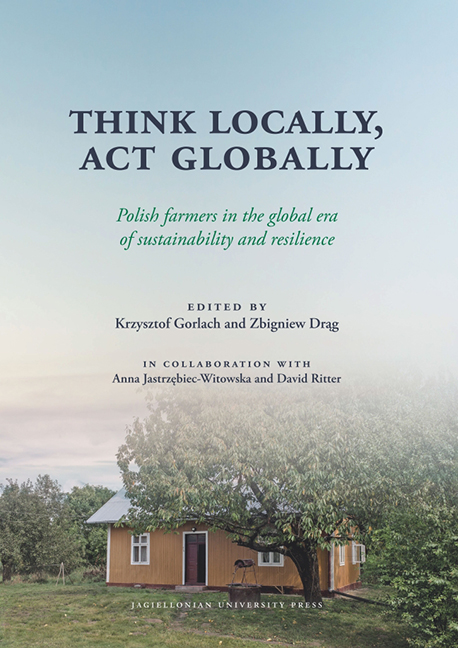Book contents
- Frontmatter
- Contents
- Family Farming: A foreword
- An Introductory Letter from the First Editor: Where the horses, cows, and even cats had their own names
- Part One Theoretical and Methodological Considerations
- Part Two Changes in the Post-Communist Transformation
- Part Three Diversification of Farmers’ Strategies
- Part Four Some Independent Studies
- Conclusion: Some Final Remarks from the First Editor
- Afterword: Renewing a Sociology of Agriculture
- Biograms
Some Introductory Remarks by the First Editor to Part Two
Published online by Cambridge University Press: 16 July 2022
- Frontmatter
- Contents
- Family Farming: A foreword
- An Introductory Letter from the First Editor: Where the horses, cows, and even cats had their own names
- Part One Theoretical and Methodological Considerations
- Part Two Changes in the Post-Communist Transformation
- Part Three Diversification of Farmers’ Strategies
- Part Four Some Independent Studies
- Conclusion: Some Final Remarks from the First Editor
- Afterword: Renewing a Sociology of Agriculture
- Biograms
Summary
The second part of the monograph is quite extensive and diverse in what it covers. It consists of seven chapters that address a variety of issues but share one common idea. All chapters emphasize the changes experienced by farm users, who are understood here as a social category, through the years 1994–2017, and describe them in some detail. Equally important are the various characteristics of family farms in Poland that were observed during the 2017 study and are analyzed in this section of the monograph.
The role of the introductory chapter of this part of the publication, which constitutes Chapter 3 of the monograph and describes and summarizes changes affecting family farms from 1994 through 2007, and also refers to my earlier research, is twofold. First, it serves as a testimony to changes occurring in Polish rural areas during the last decade of the 20th century and the first decade of the 21st century. Second, following the principles of historical sociology, the chapter presents a certain foundation and starting point for the analyses of social processes that can be observed in the studies conducted in 2017 as part of the most recent edition of the research on family farms in Poland.
The next six chapters (4 through 9) consist of analyses of research data collected during the 2017 research project, which is vital for this publication, and presents its results. Thus, Chapter 4 contains a general picture of family farms in Poland, which creates a quite useful background for all subsequent analyses, not just in this chapter but throughout the entire publication.
Chapter 5 compares two different categories of farms, namely large and small farms. This chapter addresses ideas regarding the differentiation of farms (quite common in the sociological literature) as well as the rationale and criteria for dividing the farms by size into two groups, small and large. It illustrates how small and large farms function differently within nation-state societies. Such a reflection typically leads to more observations and remarks on the concentration of agricultural production, farm stratification (i.e., the concept of the disappearing middle), or various patterns of thought and behavior, representing different farm categories.
- Type
- Chapter
- Information
- Think Locally, Act GloballyPolish farmers in the global era of sustainability and resilience, pp. 151 - 152Publisher: Jagiellonian University PressPrint publication year: 2021



